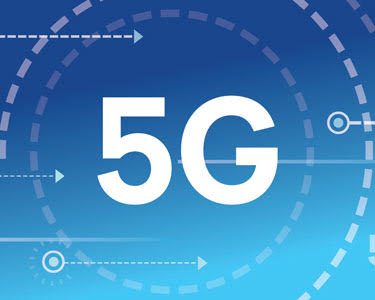Juniper Research said NTT DoComo, SK Telecom, LG U+, KT and Softbank will be at the forefront of 5G development
Japan and South Korea will lead the development of 5G technology, with the two markets accounting for 43% of global 5G connections in 2019, according to a study by Juniper Research.
The study said that global 5G connections will grow to 1.5 billion by 2025, with initial growth driven by fixed wireless access to replace or complement current broadband connectivity.
Juniper said it analyzed over 50 leading global operators, based on criteria including the results of 5G testing and trials, the extent and range of partnerships in the 5G ecosystem and the level of technology innovation. The top five operators leading Juniper’s 5G Operator Positioning Index were: NTT DoComo, SK Telecom, LG U+, KT and Softbank.
Juniper Research said that other carriers, including AT&T and China Mobile, closely followed these five players in the index.
The research also forecast that 5G broadband will be among the first services to launch over 5G. Its suitability as a last-mile solution will drive adoption to over 220 million connections by 2025, Juniper said.
“Operators must carefully consider pricing strategies for 5G broadband. Pricing must address both the anticipated large traffic generated, whilst remaining price competitive against incumbent broadband suppliers,” said research author Sam Barker.
5G in Japan and South Korea
In June, South Korea completed a tender process through which it awarded spectrum in both the 3.5 GHz and 28 GHz bands. The government made available a total of 280 megahertz in the 3.5 GHz spectrum band and 2,400 megahertz in the 28 GHz band. The spectrum was divided into 28 blocks and 24 blocks.
Participant operators SK Telecom, KT, and LG U+ had a 10-block cap per spectrum band. The telcos paid a total of 3.6183 trillion won ($3.3 billion) for the spectrum, 340 billion won higher than the starting price of 3.3 trillion won.
The three carriers have been carrying out several trials of 5G to pave the way for commercial launch next year.
In Japan, Japanese telcos are also getting ready to launch commercial 5G services. NTT DoCoMo has been carrying out a number of trials, mainly with Chinese vendor Huawei. Also, Finnish vendor Nokia recently secured a contract with NTT DoCoMo to provide next-generation equipment for the operator’s future 5G launch.
Under the deal, Nokia will support NTT DoCoMo’s commercial operation in Japan by further enhancing existing baseband units and integrating its 5G New Radio-based AirScale hardware in the network.
Rival operator SoftBank is also very active in the 5G field. The Japanese telco has inked a partnership with Huawei to demonstrate potential 5G use cases for its enterprise partners.
SoftBank has been also working with Ericsson in the execution of trials in Japan. In September 2017, the two companies had announced plans to conduct a joint trial of 5G in the 4.5 GHz band in urban areas of Tokyo. This 5G trial included two new radios, virtualized radio access network and evolved packet core RAN, beamforming, massive MIMO functionality and support services.
KDDI has been also engaged in trials, mainly with Ericsson and Samsung Electronics. In September 2017, KDDI and Ericsson inked an agreement to test a proof of concept in the 4.5GHz frequency band in a number of cities across Japan.
KDDI and Ericsson said they were planning to carry out a large number of tests across a wide range of use cases in the 4.5 GHz and 28 GHz frequency bands, including interworking with LTE technologies.

